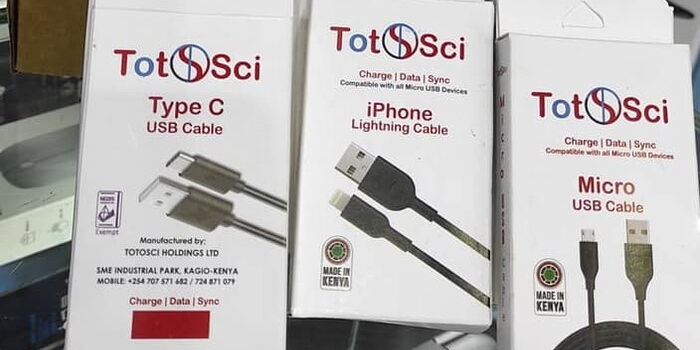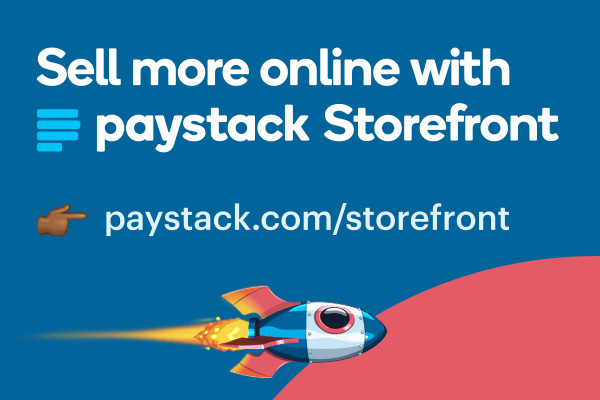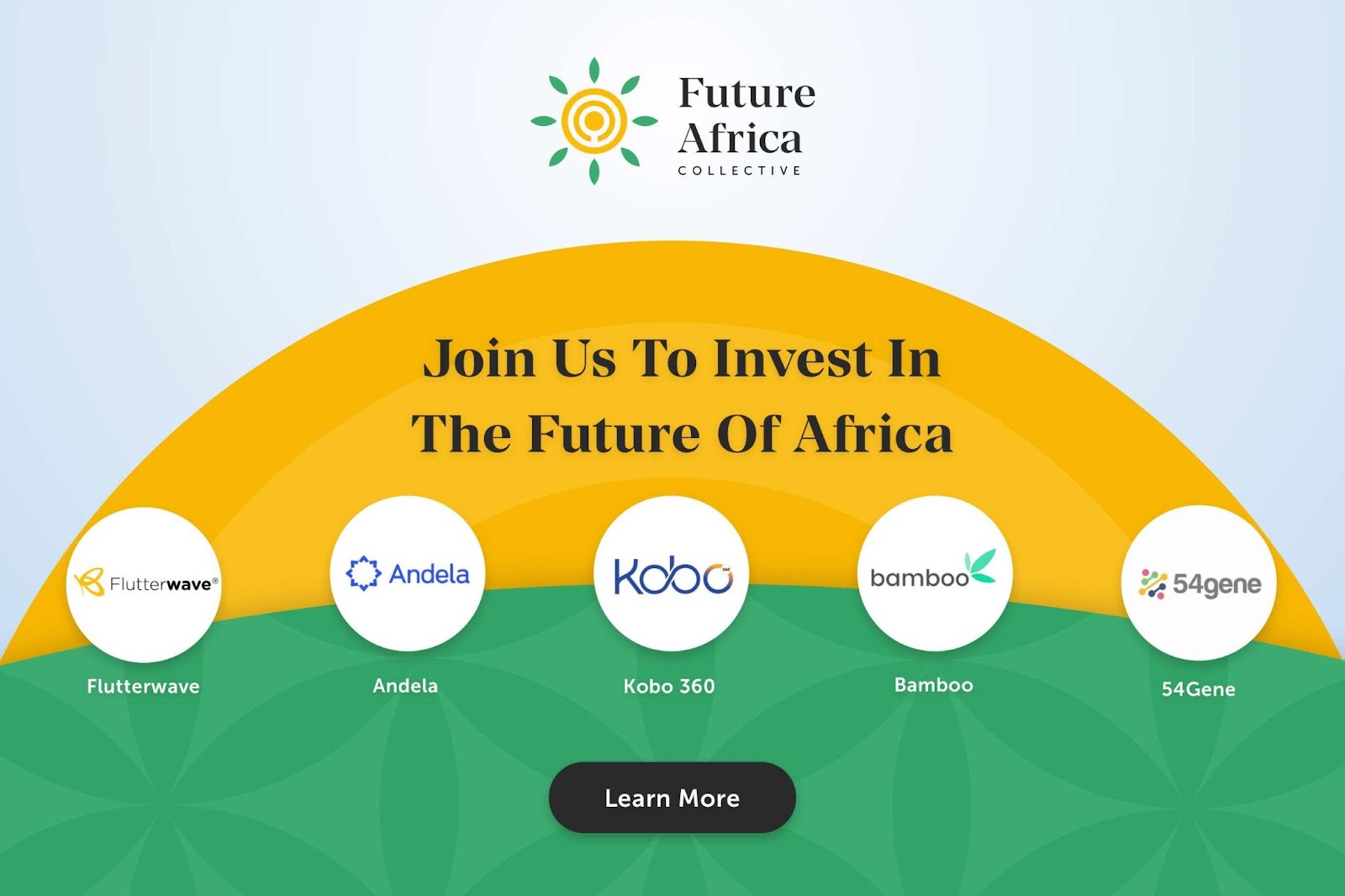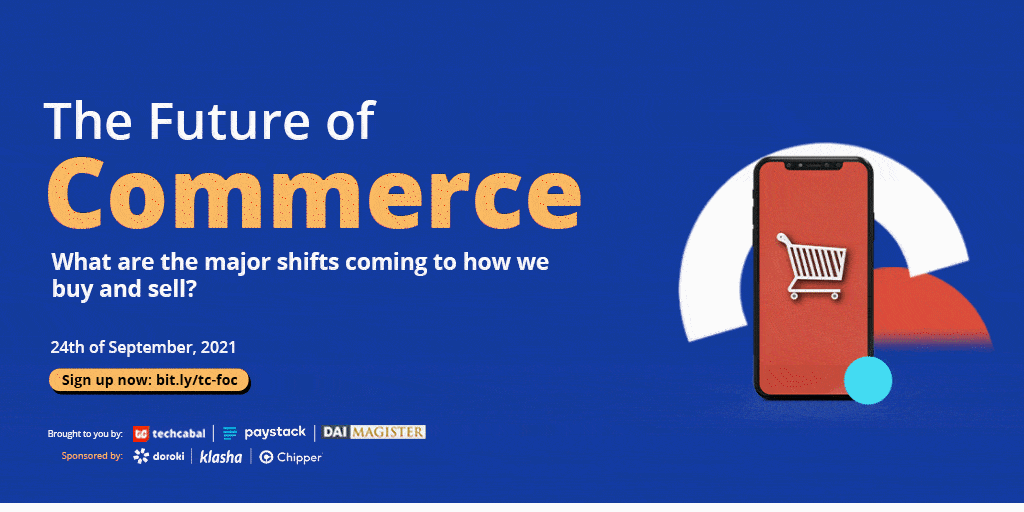
IN PARTNERSHIP WITH



Good morning ☀️ ️
Two weeks ago, over $600m worth of crypto was stolen in the largest cyberattack ever, only for the hacker, who later returned the money, to say it was all for fun.
In the hacker’s words: “I am not very interested in money! I know it hurts when people are attacked, but shouldn’t they learn something from those hacks?”
Phew! They sure did learn a lesson from this one.
In today’s edition:
- Why Future Africa is opening an Israeli office
- The Kenyan innovator fixing broken USB cables
- #FOC2021 – The 5 most asked questions
- Streaming wars: Disney wins this round
Why Future Africa is opening an office in Israel

Last week, African early-stage investment fund Future Africa made two announcements: Caleb Zipperstien coming on board as a venture partner, and the launch of its Israeli office.
These announcements sparked curiosity about why Future Africa opened an office in Israel.
Backstory: Launched in 2020, the firm operates an institutional venture capital fund (“Future Africa Fund”) and a subscription-based syndicate composed of Africa-focused angel investors (“Future Africa Collective”). The firm says it has invested $3 million in 13 startups in the first five months of 2021. By doing so, doubling their 2020 performance in dollar terms. So far Future Africa has returned $3.7 million to some of the firm’s first limited partners after profitably exiting some legacy positions through secondaries.
Adegoke Oyeniyi, TechCabal’s Editor-in-Chief, had a chat with Iyin Aboyeji and Caleb Zipperstien on the decision to expand to Israel.
Why open an office in Tel Aviv, Israel? When everyone else is looking to the West then maybe Asia, for capital?
The first reason is Caleb. You can’t go to Israel without a professional like Caleb to support you both in terms of his political savvy with the existing prime minister’s office and experience with Israeli VC OurCrowd which is a firm that is tailored after ours.
The other benefit is when we think of the kind of challenges we face here, from security to agriculture, I think there’s a lot we can learn from the Israeli venture community. We are in the US, you know. So it’s not a question of us looking away from the West but really looking in places where others wouldn’t, to find a new class of limited partners.
How would you characterize the Israeli ecosystem in terms of the size of investments, the biggest startups, or entrepreneurs?
What’s going on in the Israeli ecosystem is that the economy is maturing. We’re seeing more unicorns and growth deals than ever before. There were 19 IPOs last year. We’re not seeing less private capital coming into the country but we’re seeing a little bit less of early-stage investing. I’m a little bit curious if this then presents some market opportunity for investors who are looking for early-stage deals.
What does the current state of ecosystem relationship between Africa and Israel look like and where will Future Africa take that relationship to?
My mindset is there are hidden relationships between the Nigerian and Israeli tech communities. It’s not at an all-time high though. So there’s an opportunity for us to really build that with Caleb in Israel, get more Israeli LPs, people that are very optimistic about technology and its use for solving real problems. And we’re not stopping with Tel Aviv. At the moment, we’re having conversations about an office opening in Dubai and London. We’re going to be scaling Future Africa very fast around the world and building this global investment firm that’s focused on Africa.
Read the full conversation on why Future Africa is opening an office in Israel
Increase your online sales with a Paystack Storefront – a free, beautiful seller page that helps you bring creative ideas to life.
Fixing broken USB cables
We’ve all been there before, getting a replacement phone charger cable and hoping it’ll last as long as the maker says it will.
Yes, continue
Well, Kenyan innovator Anthony Muthungu had had enough of dealing with phone cables that didn’t last long, so he set out to provide better options for himself and Kenyans.
“Some of the challenges we noted were deliberately done by the manufacturer so that after two days, you’ll go back to buy another one,” he said in a DW interview.
Realizing the only way to solve this was to create better cables, he launched Totsci, a company that manufactures USB cables.
Meet Totsci Cables

Totsci cables cost about $1 per piece compared to foreign cables that could cost as high as $3, and Muthungu claims they last twice as long.
At the moment, Muthungu is looking to ramp up the current production capacity from 100 pieces per day to 1,000 per day. He’s also looking at producing earphones and smartphones sometime in the future.
Read more: Story of 28-Yr-Old Kenyan Engineer Owning a USB Cable Factory
Join the Future Africa Collective – an exclusive community of investors who invest in startups building the future of Africa. With a $1,000 annual or a $300 quarterly subscription fee, you get access to invest a minimum of $2,500 in up to 20 fast-growing African startups each year. Learn More
#FOC2021 – The 5 Most Asked Questions
Is the Future of Commerce a physical or online event?
It’s a mix of both, or what we like to call a hybrid event. This means that one part of the audience will join us online, and another part will be physically present.
Do I have to pay to attend?
No. The Future of Commerce is completely free to attend.
Is attendance restricted to just startups?
Absolutely not. Startups are just one segment of our audience. We’re also looking to have investors, telcos, banks, FMCGs, small businesses, and consumers join us.
Will I get a chance to network?
Definitely. It’s important to us that attendees get to meet speakers and other attendees, and we hope that this will birth mergers, partnerships, investments, and other opportunities.
How can I register?
It’s easy. Simply visit bit.ly/tc-foc to sign up.
🔔Haven’t registered yet? Best to secure your slot now.
The Future of Commerce is brought to you in partnership with DAI Magister and Paystack and is sponsored by Doroki, Chipper Cash and Klasha.
🤝Looking to sponsor? Send an email now to favour@bigcabal.com
The hottest knowledge podcast right now?
Take control of your lifelong investing journey by learning the basics of US Stocks and Crypto in an hour. Stocks have existed for over 100 years, Crypto is an asset class of the future, acquire the knowledge for free on our simplified podcast here.
Streaming wars: Disney wins this round
All of the big streaming video players have reported earnings for the second quarter of 2021. Here’s how they stand:
Netflix: 209 million paying subscribers, out of which 73.95 million subscribers are in the U.S. and Canada.
Still the market leader, Netflix added just 1 million new customers last quarter, a decline from the 4 million new customers it added in the quarter before this one. As the pandemic wanes and regular activities commence, Netflix will look towards its international growth efforts and the return of hit originals such as Sex Education and Money Heist next quarter.
Disney+: 116 million subscribers. If you add ESPN+, and Hulu, which respectively now have 15 million and 43 million subscribers, it bumps Disney’s total subscribers to 174 million.
Disney+ and Hotstar, Disney’s Indian streaming service, added 12.4 million new subscribers last quarter, a 30% increase on the quarter before that where it added almost 9 million new Disney+ subscribers.
Clearly, Disney is catching up with Netflix, as it benefited from a handful of recent popular movies, including Cruella and Luca, which was placed directly on its Disney+ service.
Amazon Prime Video: More than 175 million Amazon Prime members have streamed shows and movies in the past year. With no updates given on the specific performance of Amazon Prime during second-quarter earnings, we’ll just have to wait till next quarter. By then, the purchase of MGM studios might start bearing some fruit.
WarnerMedia’s HBO and HBO Max: 67.5 million global subscribers (up 3.6 million).
Feeling confident about the progress so far, AT&T raised its year-end global subscriber forecast for HBO Max to 73 million from 70 million in its second-quarter earnings statement.
NBCUniversal’s Peacock: 54 million “sign-ups” (up 12 million from last quarter), more than 20 million monthly active accounts.
Riding on the wave of the exclusive Olympics streaming deal, NBCUniversal drove in new subscribers. It’ll be hanging on to using the exclusive content from the Olympics to retain and attract new subscribers in the next quarter.
Apple TV+ subscribers?
No updates given during second-quarter earnings. Looks like Apple is just hanging in there as its one-year free Apple TV+ subscriptions, which it gives away with new hardware such as iPhones, start to expire.
Small business budget? Access affordable service and more on the FCMB Business Zone; a robust one-stop online platform that provides a wide range of services such as advisory, escrow, certified online learning, etc. to small and medium enterprises. Access it for free here.






























